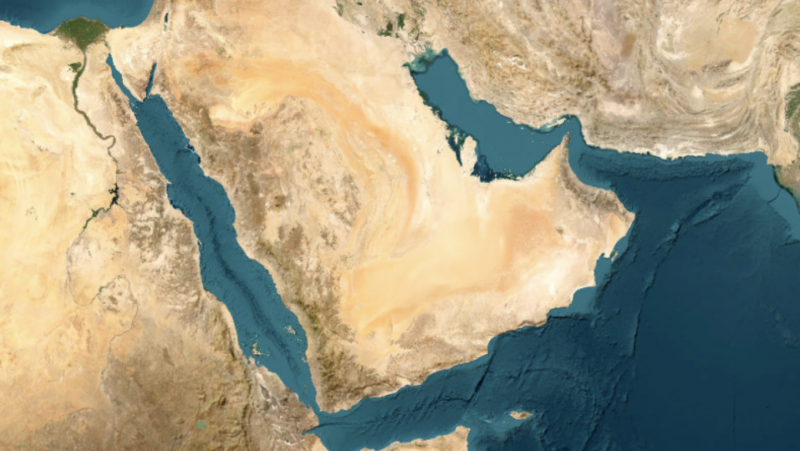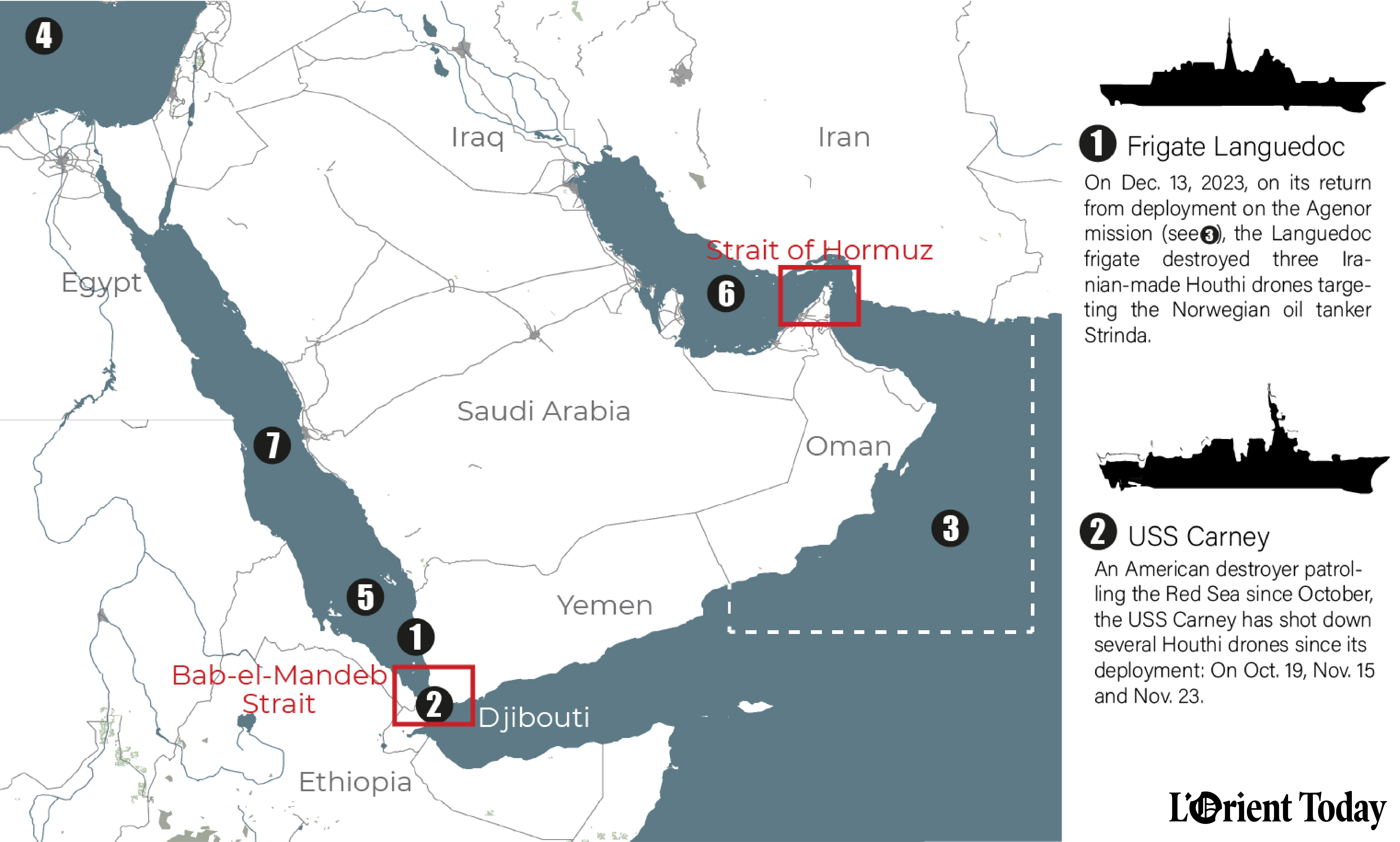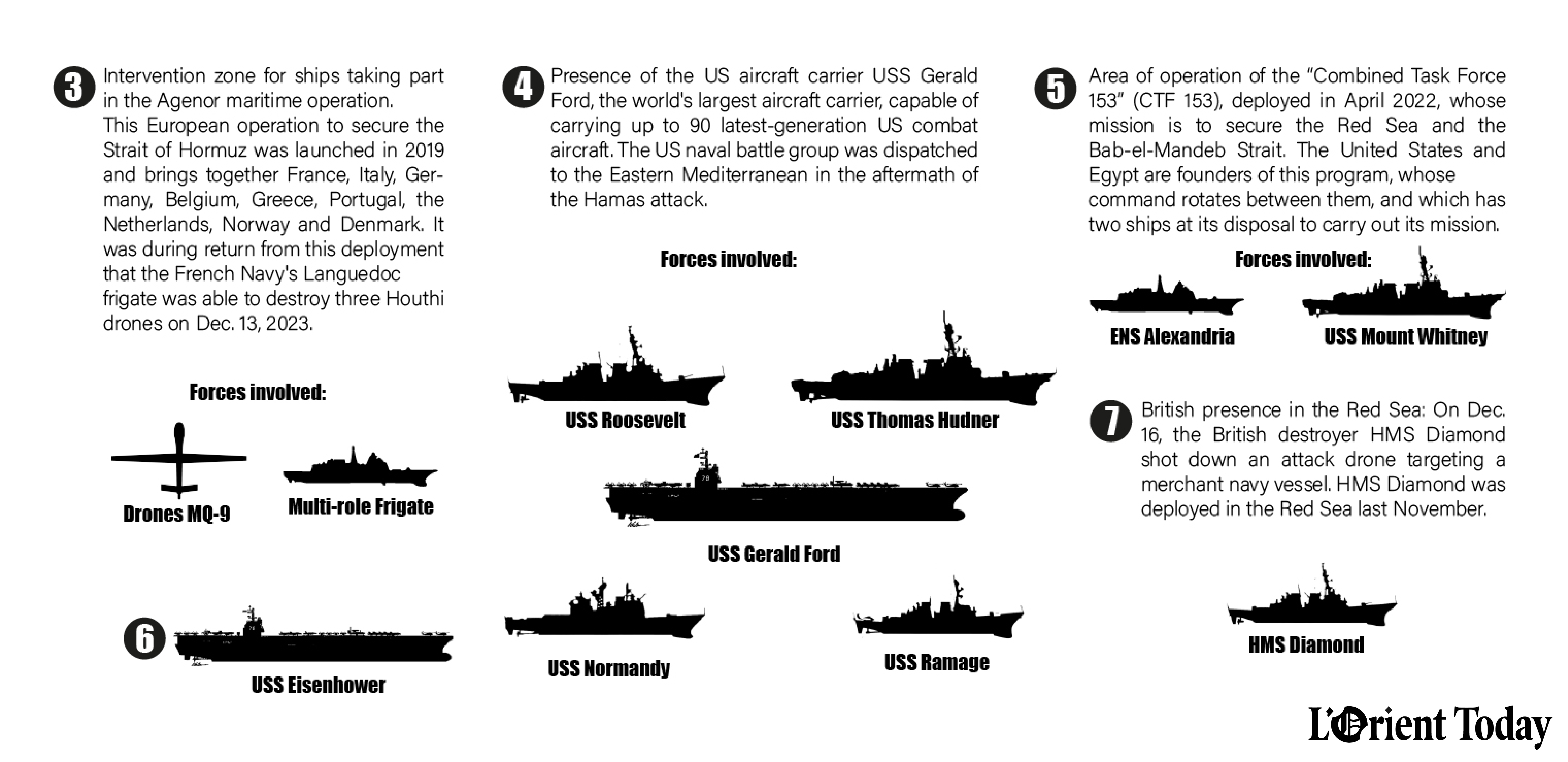
On Dec. 16, the world's two largest commercial shipping companies ordered their vessels to stop transiting the Bab el-Mandeb Strait. Denmark's Maersk, the world's leading shipowner, which controls almost 15 percent of maritime container traffic, announced its decision on Nov. 15. The next day, Germany's Hapag-Lloyd (7 percent of the market) followed suit. The decisions were prompted by a series of attacks on commercial vessels by the Yemeni Houthis in recent weeks.
The Iranian-backed group had initially indicated that it would only target ships with links to Israel, but then reversed its decision. On Tuesday, a senior rebel official declared that "any country" acting against them would see its ships targeted in the Red Sea, the day after Washington created a multinational maritime protection force.
By the second half of 2023, 8.8 million barrels of oil would be passing through the Strait every day, representing 10 percent of global maritime trade. For merchant shipping, the shortest alternative would be to bypass Africa via the Cape of Good Hope. But this route would considerably lengthen journeys between Asia and Europe. The specialized website S&P calculated that the journey between Singapore and Rotterdam, two hubs of world maritime trade, would be 40 percent longer through bypassing Africa to the south.
In response to the tensions, several Western countries have increased their military presence in Yemeni waters in recent weeks, in addition to the multilateral operations already underway. During a visit to Tel Aviv, US Defense Secretary Lloyd Austin announced that Combined Task Force 153 (see infographics) would form the basis of an international force to protect trade in the Red Sea. In addition to the USA and Egypt, which normally command CTF 153, the operation is expected to involve France, Bahrain (home port of the US Fifth Fleet), the UK, Canada, Italy, the Netherlands, the Seychelles and Spain.


- Even if Netanyahu wanted de-escalation with Lebanon, a law could make it difficult: Media report
- To background of bombs, Palestinians flee Rafah to seek shelter elsewhere once again
- Hamas accepts Qatar-Egypt cease-fire proposal, Israeli official describes move as 'ruse': Day 213 of the Gaza war